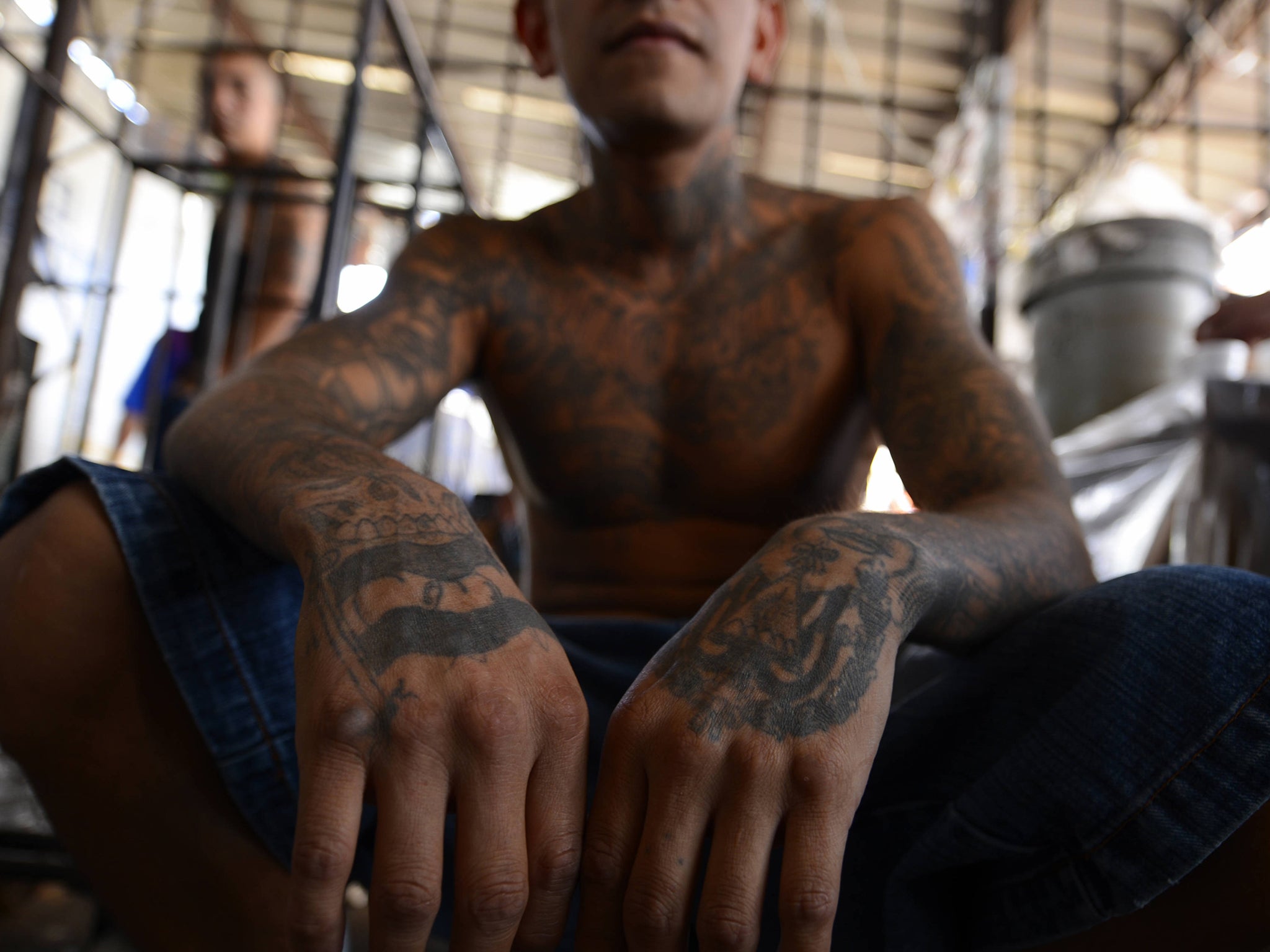Milan struggles to cope as Latin American gang violence starts afflicting general public
Brutal gang activity has only deteriorated in recent years as initiatives to combat the violence have stopped

Catching fare-dodgers is all in a day’s work for ticket inspectors on Milan’s suburban trains. But in retrospect Carlo Di Napoli is probably telling himself he might have known there’d be trouble laying down the law to a group of Latin-American kids.
One night this month, when the inspector told one of the young men to show a ticket or face the consequences, another produced a machete and hacked off his left arm.
It was left hanging by little more than a thread. Four surgeons at Milan’s Niguarda hospital operated for more than eight hours to try to reattach it. It is not yet clear how much use he will regain of his arm. But it could have been worse – a second machete blow, which Mr Di Napoli deflected with his good arm, had been aimed at his head.
Within hours, Milan’s flying squad had arrested two men, including an El Salvadoran national, aged 19, who is believed to have wielded the machete. They are thought to be members of Mara Salvatrucha (MS-13).
Milan, Europe’s slick design and fashion capital, which last week played host to Michelle Obama, David Cameron and François Hollande at its glitzy Expo World Fair – two stops up the track from the attack – finally had to admit to a problem.
That problem is Latin-American gangs. In the past 10 years, there have been attacks, robberies and rapes linked to MS-13 and rival gangs. But until now, the serious violence has been internecine. However, police and community leaders could see that it was only a matter of time before members of the public became the victims.
Evidence of MS-13, the gang formed in 1980s Los Angeles by El Salvadorans fleeing their war-torn country, appeared in Milan in 2006. Around that time, police and community workers became aware that young men declaring themselves to be part of the Latin Kings, the group formed in New York in the 1980s, were active in the city. Reports suggest that their arrival seems to have attracted more friends and family members from Hispanic communities – gangs included.
Milan’s flying squad, the squadra mobile, led by Alessandro Giuliano, has now mapped the complicated patchwork of gangs spread across the city from Bovisa-Villapizzone in the north, where the ticket inspector was attacked, to Corso Lodi in the south-east. There are now around 15 or so groups.
As evidence of gang activity emerged in 2007, forward- thinking figures in the then left-wing provincial government of Milan prioritised community work to help integrate young Latin Americans. The authority’s community relations councillor, Irma Dioli, with the help of Ecuador’s consulate in Milan, even persuaded a high-ranking member of the Latin Kings to fly over from the US to sign a “pact of legality” with city authorities, to encourage members to renounce crime and as a reminder of the group’s original raison d’être – fighting prejudice against Hispanics – in return for recognition of the group’s cultural importance. Conservative commentators in Italy dismissed the move as political correctness.
“But in the past five or six years, with more right-wing administrations, the initiatives have dried up and the situation has deteriorated,” Ms Dioli told The Independent on Sunday.
Last week, visitors arriving at Expo Milano on local trains were eyeballed by strapping private security staff marching up and down the carriages in pairs. The machete attack comes at a time when migrants are at the top of the political agenda.
The Lombardy region’s right-wing governor, Roberto Maroni, who has rarely, if ever, commented on the violence inflicted by gang members on rivals, called for troops on the trains. Matteo Salvini, leader of the xenophobic Northern League, said he wanted to be able to “get on a train without the risk of being attacked with a machete or catching scabies”.
The liberal leader of the Italian Senate, Pietro Grasso, insisted that the train attack should not be confused with the immigration issue. “We must keep the two things separate,” he said.
But many, even of his own political persuasion, disagree. “This is about immigration and migrants, and how we integrate them,” said Ms Dioli. “We should not excuse criminal behaviour. But if we just exclude some groups from mainstream society and deny them opportunity, then we are storing up problems.”
Join our commenting forum
Join thought-provoking conversations, follow other Independent readers and see their replies
Comments
Bookmark popover
Removed from bookmarks